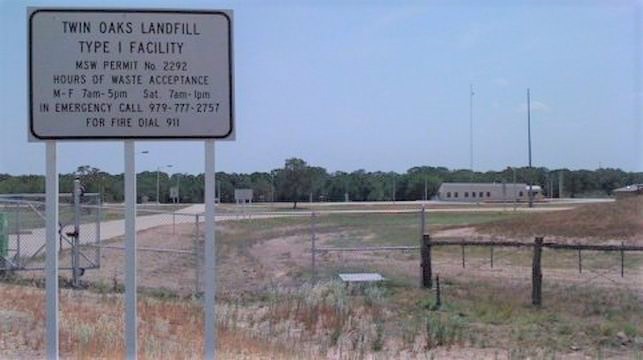
The operator of the Twin Oaks landfill that serves Bryan and College Station has entered a contract with a company that will build a plant to remove and distribute methane gas.
Bryan Griesbach of the Brazos Valley solid waste management agency (BVSWMA) says a Midland based company is paying for the infrastructure and paying the landfill for the natural gas that is collected.
The plant, which will employ six to seven people, is expected to be operational by early next year.
Click below for comments from Bryan Griesbach, visiting with WTAW’s Bill Oliver:
News release from the Brazos Valley Solid Waste Management Agency (BVSWMA):
The Brazos Valley Solid Waste Management Agency (BVSWMA, Inc.) is pleased to announce an agreement with Midland-based Morrow Energy to develop a renewable natural gas plant at its Twin Oaks Landfill.
This future plant will capture the reliable energy source of landfill gas — a natural byproduct of the decomposition of organic materials within Twin Oaks Landfill — and then distribute it on the energy market as renewable power. The plant is expected to be operational by early 2023.
“This partnership is a great addition to the Twin Oaks Landfill and will help keep the cost of landfill disposal fees market competitive for our residents,” said Bryan City Councilmember Prentiss Madison, who also serves on the BVSWMA board.
College Station Mayor Pro Tem and BVSWMA board chair John Nichols also touted the benefits of the agreement.
“They’re really two-fold,” Nichols said. “The net returns from the gas we sell are a positive return to the residents of both cities. Beyond that, BVSWMA is relieved of the costs associated with mitigating this naturally produced gas, which would have been substantial in both financial and regulatory terms.”
